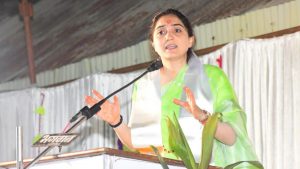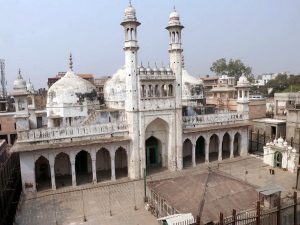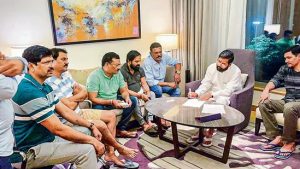India was rattled with political controversies in the year about to end. They began with a spark and some had disastrous consequences before dying a natural death.
Here is what happened:
The Hijab controversy
It all began in January when Muslim students were denied entry into a college in BJP-ruled Karnataka’s Udupi because they were wearing a hijab. According to the teachers, the dress didn’t adhere to the prescribed dress code of the college. The girls opposed the teachers and started protesting against the college authorities. In response, a group of boys from another college started wearing saffron shawls to college, which led to a fight among the students. In response, the Karnataka High Court released an order that stated wearing a hijab was not an essential religious practice of Islam. And refraining from its use did not violate religious freedom in the country.
Muslim students filed petitions to revoke the High Court order and boycotted examinations. During their protest, the Muslim girls voiced their disappointment at not being allowed to wear hijab in educational institutions; they said they had been deprived of equal rights. The High Court is yet to determine whether wearing a hijab can be termed an essential religious practice. Essential religious practice encapsulates fundamental elements of the religion and not following them results in the change of religion itself. But these practices have to be within the limits of Article 25 of the Constitution.
The Nupur Sharma controversy
Bharatiya Janata Party (BJP) spokesperson Nupur Sharma’s comment on the Prophet in a TV debate on the Gyanvapi Mosque issue sparked a nationwide controversy. An FIR was filed against Nupur Sharma for allegedly giving hate speech. A video clip of her speech got viral on Twitter leading to widespread protests and cases of violence across the country. Muslim nations such as Qatar and Afghanistan slammed India over her comments. Indian products in Gulf markets faced a major setback.

Agniveer protests
On June 14, the Central Government introduced a short-term recruitment policy, the Agnipath scheme, for Indian youth to serve in the armed forces. The scheme enabled youngsters aged 17.5 to 21 to be inducted into any of the three services as “agniveers” for a period of four years. Reportedly, the soldiers recruited under Agnipath were to be released from service after four years. Soon after the government made the announcements, protests erupted in Bihar and Rajasthan and some other places as defence job seekers voiced concerns over job security and pension. Trains were set on fire at a railway station in Bihar.

Gyanvapi Masjid
In early May, a Varanasi court directed the Archaeological Survey of India (ASI) to probe the structure of the Gyanvapi Masjid. A Varanasi-based lawyer filed a petition in the lower court claiming illegality in the construction of the Gyanvapi Masjid and sought an archaeological survey of the mosque. The controversy was triggered when five Hindu women filed a suit in Varanasi court, seeking to worship the Shringar Gauri within the Gyanvapi Mosque complex. The mosque committee went to the apex court. A petition was filed in 1991 in the Varanasi court where the petitioners, the local priests, sought permission to worship in the Gyanvapi Mosque area. The petitioners said that the mosque was built on the orders of Aurangzeb by demolishing a part of the Kashi Vishwanath Temple during his reign in the 16th century.

Shive Sena split
On June 20, Maharashtra Chief Minister Uddhav Thackeray called a meeting of Shiv Sena legislators to discuss cross-voting by some party legislators during the legislative council elections. Though the Sena managed to win both its seats, it was worrying that at least 10 party legislators, led by rebel Eknath Shinde, voted for a BJP candidate. Shinde ran away along with most party MLAs first to Gujarat and then to Assam, both BJP-ruled states and didn’t listen to appeals and threats from the Thackerays. After days of high drama, Shinde was sworn in as the new chief minister of Maharashtra and BJP leader Devendra Fadnavis as his deputy.



Comments are closed.